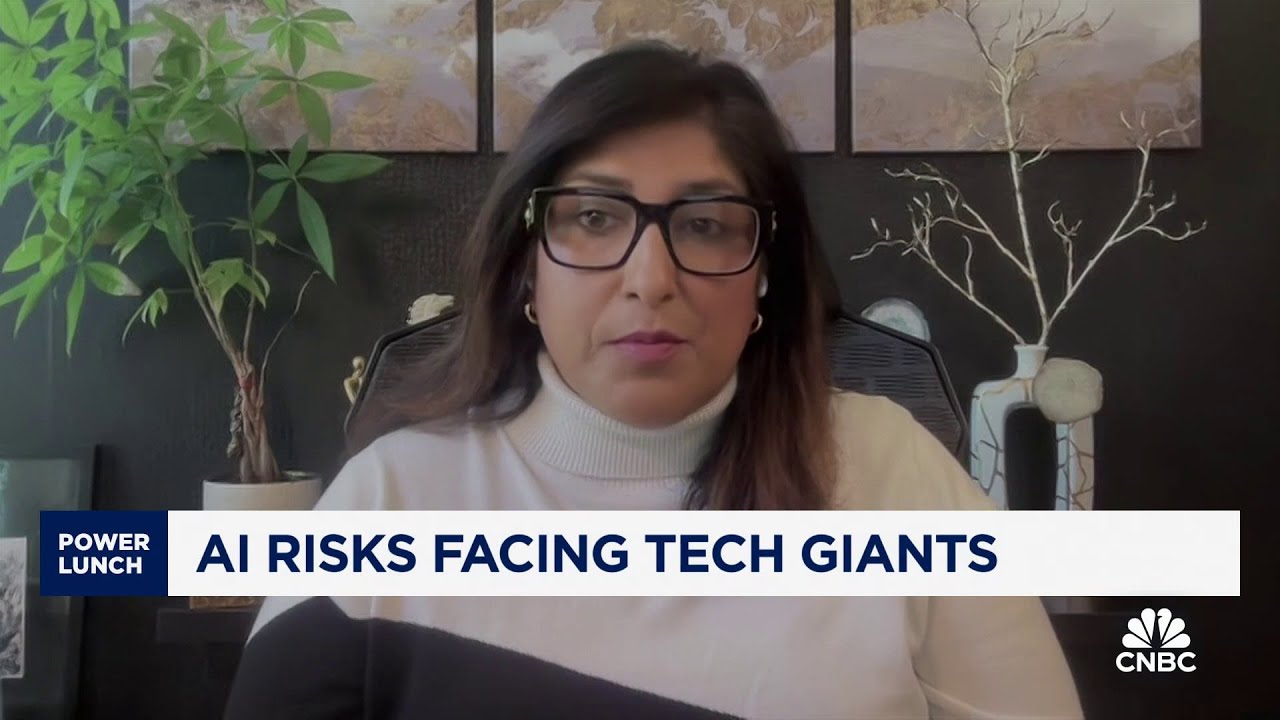In a discussion with tech correspondent Steve Kovach, Credo AI CEO Navrina Singh highlighted that while Apple may be lagging in AI development, the broader tech industry is expected to adopt a more cautious approach regarding AI risks in upcoming earnings reports. She emphasized the need for effective governance and accountability as companies like Microsoft and NVIDIA invest heavily in AI, while also managing investor expectations about the tangible benefits of these technologies.
In a recent discussion, Credo AI CEO Navrina Singh and tech correspondent Steve Kovach explored the current state of Apple and the broader tech industry in relation to artificial intelligence (AI). A report indicated that Apple employees feel the company is lagging behind other tech giants by about two years. Tim Cook, Apple’s CEO, emphasized a philosophy of prioritizing quality over being first in the market, a stance that has been a hallmark of Apple’s strategy since the days of Steve Jobs. As Apple prepares to launch its AI features, there are mixed expectations regarding their competitiveness compared to offerings from companies like ChatGPT and Meta.
Kovach noted that while Apple may be technically behind in AI capabilities, the company has a history of catching up and excelling in the long run. He suggested that the conversation around Apple could shift significantly within a year, depending on how the company executes its AI strategy. The anticipation surrounding Apple’s upcoming AI features is high, but initial tests have shown them to be underwhelming compared to competitors, raising questions about their potential impact on the market.
Singh shifted the focus to the broader tech landscape, predicting that upcoming earnings reports from major companies like NVIDIA and Microsoft will reflect a more cautious approach regarding AI risks. She highlighted the importance of trust and governance in delivering sustainable value from AI technologies. As companies navigate the unknown and known risks associated with AI, Singh believes that they will need to demonstrate effective governance to reassure investors and stakeholders.
The discussion also touched on the significant financial investments that tech giants are making in AI development. Microsoft, for instance, is reportedly spending around $19 billion per quarter on AI initiatives, with expectations of increasing that amount. Other companies like Meta and Amazon are also investing heavily in AI, but there is growing impatience among investors regarding the lack of immediate returns on these investments. Singh emphasized that while there is excitement about AI’s potential, companies must manage expectations and demonstrate tangible benefits to their users.
Finally, Singh pointed out that Microsoft has faced challenges in proving the effectiveness of its AI products, such as the Copilot assistant. Despite initial promises, there is little evidence that these tools have significantly improved productivity for users. As the tech industry continues to evolve, companies will need to better articulate the value of their AI offerings and ensure that they can deliver on the promises made to investors and consumers alike. The conversation highlighted the delicate balance between innovation, investment, and the need for accountability in the rapidly changing landscape of AI technology.
